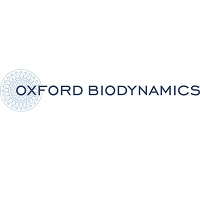Alexandre Akoulitchev, Chief Scientific Officer of Oxford BioDynamics, said:
“We are looking forward to joining forces with the Casa Sollievo della Sofferenza team, to develop reliable non-invasive biomarkers for ASD. We are highly appreciative of the great expertise and ASD insights from our Italian colleagues. We strongly believe our work will help to improve the understanding of epigenetic controls and mechanisms behind this disorder. This agreement further demonstrates rising interest in our proprietary technology, EpiSwitch™, which offers results of unique value and clinical utility in biomarker discovery and disease understanding for a broad spectrum of complex indications, from immune-oncology and autoimmune conditions, to neurodegeneration, psychiatric and neurodevelopmental conditions.”
Oxford BioDynamics Plc (LON:OBD) today announced that it has signed a collaboration agreement with Casa Sollievo della Sofferenza, a recognised research and biomedical institution of national importance in Italy, to identify EpiSwitch™ biomarkers for the blood-based diagnosis of Autism Spectrum Disorder (ASD).
The agreement between OBD and Casa Sollievo della Sofferenza aims to develop a diagnostic biomarker assay for ASD, using the EpiSwitch™ technology platform. Casa Sollievo della Sofferenza will supply blood samples from both autistic subjects and healthy controls. These will then be screened at high resolution for epigenetic changes, in the form of chromosome conformational signatures, by OBD using the EpiSwitch™ high throughput technology platform. In addition to identifying a potential diagnostic biomarker assay, OBD hopes to expand the epigenetic knowledge base for ASD, facilitating future research and pharmaceutical development into this spectrum of disorders.
ASD, which is thought to be caused by a complex interaction of genetic, epigenetic and environmental factors, represents a group of neurodevelopmental disorders, characterised by problems with social interaction and communication. It is estimated that approximately 1 in every 100 people in the UK has ASD. There is no cure for ASD, however speech and language therapy, occupational therapy and educational support provide great benefits for these patients. Earlier diagnosis would allow more timely intervention, improving the results of treatment and enhancing clinical outcomes.
Currently, diagnosis for ASD remains challenging due to broad ranging symptoms and differential progression and manifestation of the disorder. As the EpiSwitch™ platform monitors the environmental impact on the genome, it is well placed to identify biomarkers for diagnosing ASD through minimally invasive blood sampling.

